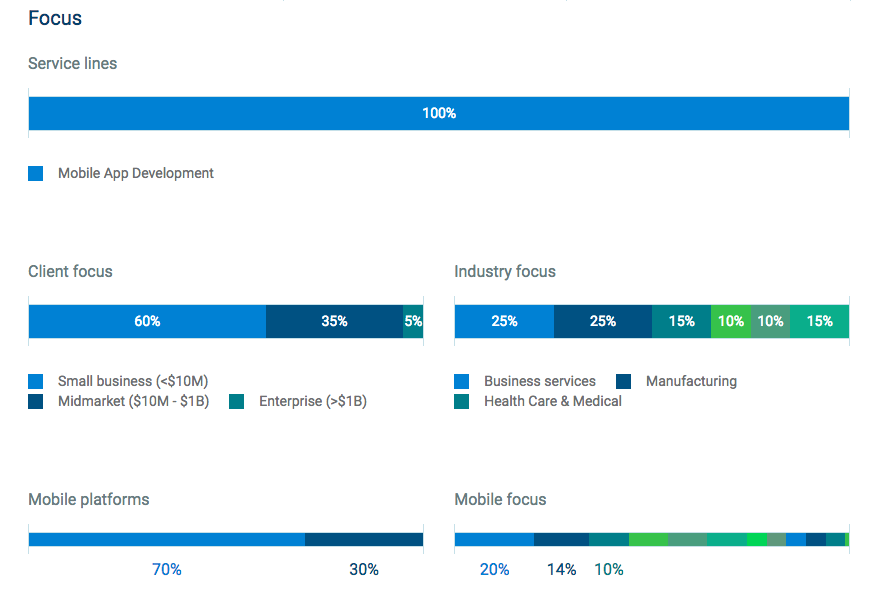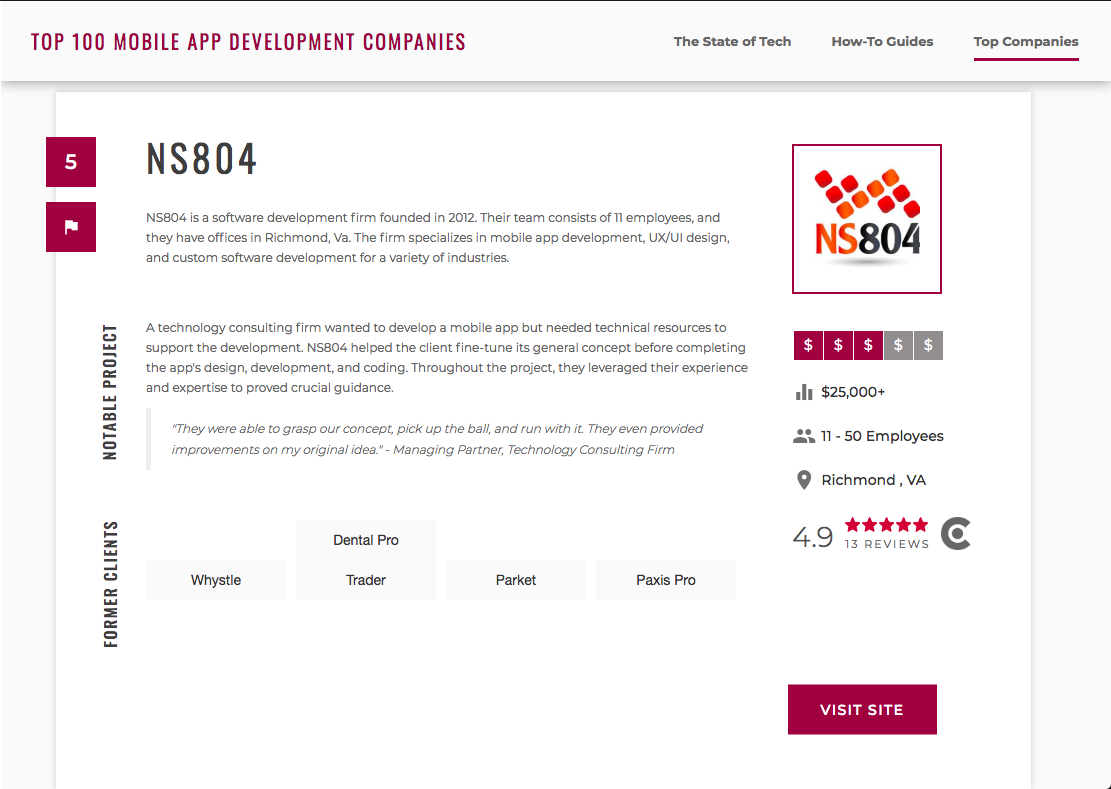How to find the perfect mobile app developer
So, you’re an appreneur (or a CTO), and you want to make an app. Great! Do you already have a development partner? If yes, even better!
If you answered “no,” don’t worry. We’re going to go over everything you need to know and do to find the perfect developer, just for your specific needs.
Before you get into the trenches and start your search for a developer, it’s important to ask yourself a few questions:
- What do I want my app to accomplish?
- What platform(s) do I want my app to be on?
- What is my competition?
- What is my time table?
- What is my budget?
Once you can answer these questions, you’re ready to move to the next step – finding a development partner. But first, let’s delve into the reasoning behind these questions.
What do I want my app to accomplish?
This is probably the most important question you can ask yourself, as it sets the stage for all the questions that follow. You should be able to describe what your app does in no more than two sentences. For example:
I want to make an AR app that expedites the training of my technicians and assists them with diagnostics while on the job-site.
What platforms do I want my app to be on?
This question is important to ask; as development, publishing, available markets, and user behavior can (and does) vary wildly between the two main platforms, Android and iOS.
While this question is largely based upon what you want your app to accomplish, there are a few factors to consider when deciding the best answer to this question:
- In the U.S., Android owns 54.6% of the market, and iOS owns 44.4% (Android is the clear winner globally)
- More iOS users purchase apps than Android users (11.82% vs. 5.76%)
- iOS apps have a higher retention rate than Android (1% to 3% higher)
- Android has a lower publishing cost than iOS (Android has a one-time-fee, iOS is yearly)
- iOS development is cheaper than Android (by about 30%)
For more information, check out our Android and iOS dev pages, as well as a deep look into iOS development (we’ll be going over Android development soon).
What is my competition?
Knowledge is power. Knowing what you’re up against is a huge boost for your app – while researching your competitors, you can see what works for them, tailor it to your app’s brand, and do it better. If one of your competitors has a high user rating score and good reviews, download it. Take the time to use their app, and take note of features you’d like to include in your own, as well as ways to improve upon your competitor’s flow.
If you’ve searched and found no competition, you might want to consider starting with an MVP, to capitalize on your untapped market.
What is my time table?
The answer to this question is largely dependent on what you want your app to accomplish. A simple app can take less than six months to develop from inception to launch, while a complex app can take upwards of a year.
If you want to get to market ASAP, your best bet is an MVP.
What is my budget?
Again, this is largely dependent on what you want your app to accomplish. A complex app usually costs over $500,000, and simple apps can cost less that $37,500. A few things to keep in mind before setting your budget are:
- Each feature adds to the overall cost
- Certain features, like backend integration or heavy graphics have a higher cost
- Simple apps on average take 250 hours to develop, medium take 1,000, and a complex apps’ development time can take 5,000 hours.
For more information about how to formulate a budget, check out our blog post on the topic. For a personalized estimate for your own app idea, use our mobile app cost calculator.
All of these questions are necessary to answer before you speak to a developer. This will help you communicate more effectively with your developer, and they’ll be able to give you a more accurate estimate about time and cost based upon your answers.
For example, let’s say you want that AR diagnostic app to include a backend data set linked to a server so you can access system data in real time, but you only have a budget of $50,000. Your developer would be able to address these issues before making headway into the project, reducing the chance of wasted, sunken costs.
Don’t use Google to find developers
There are already companies dedicated to finding developers for you. Two sources you can trust are Clutch and The Manifest. There are a lot of sites out there that showcase development companies – but these two you can trust, as they use information from a developer’s client history, client reviews, and ability to deliver in order to determine rankings, rather than a payment hierarchy method.
If you’re already working with a developer who’s not ranked on Clutch or The Manifest, and they’re a good partner, don’t fret – personal experiences should always be weighed over site rankings. You might, however, want to tell your development partner about these sites, as they are just as beneficial for developers as they are for clients.
Using Clutch
Clutch gives you the ability to find developers, set what parameters you want to use to find them (by platform, vertical, or location), and provides you with a breakdown of that developer – from client reviews to service lines, industry focus to what types of business they’ve worked with in the past.

Shown above is an example from our Clutch profile of how information is presented on the site
Clutch also hosts a blog where you can find information covering everything from B2B marketing to ASO and beyond.
A nice feature Clutch offers are badges, which developers can display on their site to show that they’re trustworthy. If you see a developer with a Clutch badge, they mean business, and you can rest assured they know what they’re doing.

Shown above is an example of our Clutch badges
Using The Manifest
The Manifest operates in largely the same manner as Clutch. The Manifest offers industry leader shortlists, and a blog (that we’ve been featured on!) hosting great thought pieces and business advice.

Like Clutch, The Manifest will offer a short bio and client history for each development firm, so you can get a feel for what each developer brings to the table.
And with that…
You’re all set! Happy hunting!
Just remember that you’re always going to have questions – and that’s okay. A good developer will either have an answer for you, or do what they can to find one. Most importantly, your personal preference and business needs should always be taken into account, and if a website is telling you x is the better choice, but you have a good feeling about y, go with your gut.





Leave a Reply
Want to join the discussion?Feel free to contribute!